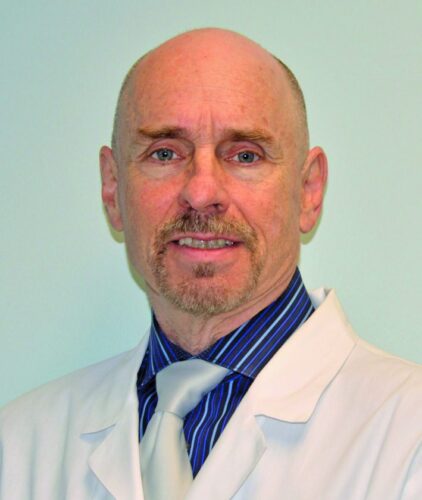Jul 1, 2024
The study of nutrition isn’t much of a science. We have few specifics on the subject, there being far too many variables (for us) to make accurate predictions. Sadly, we have little information about the consequences of many substances Americans consume regularly (especially the artificial ones), little heed to the fact that, literally, “you are what you eat.”
A common scenario is as follows. Someone goes for their annual checkup and is found to have elevated blood pressure. With little fanfare and no discussion, a prescription is written for a drug which this individual will possibly be taking for the rest of their lives. And every drug entails the possibility of complications. Plus, there is the expense, with some newer medications costing hundreds of dollars on a monthly basis.
Instead, what if the healthcare provider wrote a prescription for specific dietary additions and changes? Few Americans see food for its medicinal properties, instead looking only to satiate their hunger at that moment. Little regard is given to effects of various foodstuffs, the fast food burger and the energy drinks, the ultra-processed snack food sitting on the shelf for months.
As a partial explanation, there should be mention of the contradictions and inaccuracies of multiple recommendations handed down over the years concerning nutrition by the “authorities.” It is true, the benefits and hazards of many of the foods we eat remain in question. Varying declarations have been issued by scientists that often conflicted with previous guidelines. It is understandable that many individuals have become disinterested in the research, choosing to ignore much of the good science devoted to the topic.
What if the provider had given this person with high blood pressure a prescription for dietary changes, listing certain specific nutrients and herbs, supplements and edible items? This is the essence of Precision Nutrition, a practice in its most rudimentary stages, based on the idea that what we eat affects our health.
A definition might be listed as follows. PN attempts to make recommendations for one’s nutrition, based on specific, individual components of their genetic constitution, the person’s microbiome, metabolic profile, their overall health status, physical activity, dietary patterns, even evaluating socioeconomic and psychosocial factors. Might it be possible to someday develop precision medical therapies entirely based on diet?
To some, Precision Nutrition will strike them as just the latest fad diet. But research on the topic has increased, hastened by the costs and complications of drug-induced adverse events. Don’t delude yourself into thinking these are minor. In just one year, over a 100 billion US dollars went to treating these. Over a hundred thousand deaths occur annually as a result of these untoward complications of pharmacologic therapies.
Just to be clear, not all herbs and “natural foods” are benign. If excessive quantities of any substance are consumed for long enough, you are going to have problems. Avocados are considered a healthy food, but if you eat only them for a year, you’re going to become ill (and I’ve seen it happen!)
Nature prefers a balance, consuming a variety of greens, healthy proteins, complex carbohydrates, essential vitamins, etc. But experiencing an adverse reaction from foodstuffs is far less likely and actually hard to do. Precision Nutrition (aka Nutriceutical Medicine, aka Precision Medicine) is going several steps further, proposing that an illness can be treated, i.e. controlled or resolved, by ingesting some specific substances in certain quantities.
The concept is quite ambitious and will obviously require a more quantitative and detailed understanding of the complex relationships between a human being, their total nutritional intake, socioeconomic factors, and their genetics. This level of understanding is a long way off, but many now recognize the importance, and potential, of the idea of food as medicine.
It’s a vital question: “What should I eat to be healthy?” There are essential differences one person to the next. What is healthy for one person may not be for another. Additionally, age is also a factor, as it is in all discussions on health and wellness. Our responses to diet change over time and must be accounted for when anything, drugs or food, are prescribed.
Unfortunately, there has been abundant subterfuge and propaganda by the big food industry, who has waged a dedicated campaign of misinformation on the topic. The American diet, although improving according to some studies, continues to result in higher levels of obesity, heart disease, and all the other illnesses of lifestyle. Finances are certainly a factor for many working Americans, struggling to keep the lights on. But how can a food be good for you if it is manufactured in industrial plants and composed primarily of chemicals?
As a culture, we need to know more about our diet and its relation to health and wellness. More research into this issue may, in future, deliver on the promise of Precision Nutrition, but we have a long way to go, with most Americans grabbing dinner as opposed to planning a meal. Still, there could come a time when you might be prescribed a nice turmeric-flavored stir fry to beat your pancreatitis. Not such a bad prescription after all!
Dr. Conway McLean, DABFAS, FAPWHc, has offices in L’Anse and Marquette. He is a physician who specializes in treating lower leg, ankle and foot problems.
Today’s breaking news and more in your inbox
By Mary Christine Stevens For the Mining Gazette As Independence Day approaches, many are stocking up on …
Fresh fruits and vegetables are available to seniors at local farmers markets. Are you a low-income adult over …
Today’s breaking news and more in your inbox
Copyright © The Mining Gazette | https://www.mininggazette.com | P.O. Box 368, Houghton, MI 49931 | 906-482-1500
